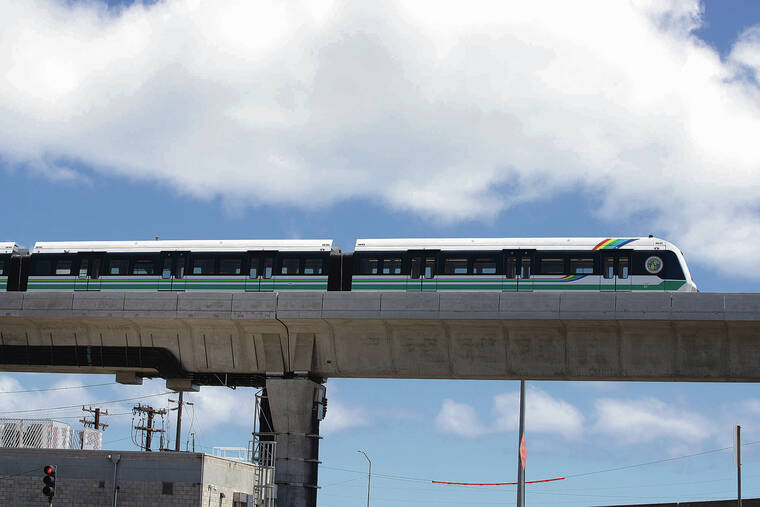A $324.1 million lawsuit filed by Hitachi Rail Honolulu JV against the Honolulu Authority for Rapid Transportation (HART) has been dismissed by the court, at least temporarily. On August 14, 2023, 1st Circuit Court Judge Shirley Kawamura ruled against Hitachi’s claims of breach of contract and unjust enrichment, which arose from alleged delays during the construction of Honolulu’s rail system, a project costing over $10 billion.
The lawsuit, initiated in December 2022, accused HART and the City and County of Honolulu of mismanagement that led to significant financial losses for Hitachi, which is responsible for the design, construction, operation, and maintenance of the automated train system. Judge Kawamura’s decision followed motions to dismiss filed by the city in January, effectively closing Hitachi’s claims on three counts. Notably, two of these dismissals were issued “without prejudice,” which leaves the door open for Hitachi to potentially refile in the future.
The dismissal was briefly mentioned by city Deputy Corporation Counsel Lisa Hirahara during a HART board meeting. The meeting included a closed-door session to discuss updates on the lawsuit, but no formal announcements were made afterward. A spokesperson for HART later confirmed that the involved parties are preparing orders for the court’s approval regarding the dismissal.
In a statement, Ian Scheuring, deputy communications director for the Mayor’s Office, explained that the lawsuit was dismissed because Hitachi did not adhere to the dispute resolution process outlined in the contract. He noted, “The court ruled from the bench and did not issue a written decision.” He added that there was no settlement agreement in place, and the motions to dismiss were filed early in the litigation process.
Hitachi’s lawsuit claimed that HART’s inability to create timely schedules resulted in cost increases of tens of millions of dollars, which the company had to absorb. The suit alleged that HART’s management allowed incompatible track installation by another contractor, forcing Hitachi to resolve the issue without compensation. Additionally, it claimed that HART directed Hitachi to mobilize its workforce for operations and maintenance at a time when the workforce would not be required, resulting in additional costs exceeding $92 million.
The legal battle began after Hitachi was contracted by HART in 2011 for $1.4 billion. The contract requires Hitachi to deliver a fleet of fully automated, driverless electric trains, to operate along an 18.75-mile elevated guideway system with 19 stations from East Kapolei to Kakaako.
Earlier this summer, HART officials expressed concerns about the escalating legal costs associated with the Hitachi lawsuit. A report indicated that the claim exceeded $120 million, and HART had reached an agreement in principle with Hitachi, with settlement details being finalized. This agreement potentially allowed for an additional cost justification of up to $30 million.
Despite the dismissal of the lawsuit, Scheuring noted that the specific savings in legal costs are currently unknown. He emphasized that Hitachi retains the option to file a new lawsuit if it disagrees with the outcome of the required dispute resolution process.
In related developments, HART Executive Director and CEO Lori Kahikina announced that Segment 2 of the rail system, which connects the old Aloha Stadium to Middle Street in Kalihi, is expected to commence public revenue service on October 16, 2023. An official opening ceremony will take place on October 15, 2023, organized by the city’s Department of Transportation Services. Kahikina clarified that unlike the previous segment’s opening, there will be no public rides until the scheduled start date, although free rides will be offered on October 17 and 18 for the entire Skyline system, including TheBus and TheHandi-Van, as recently approved by the City Council.
